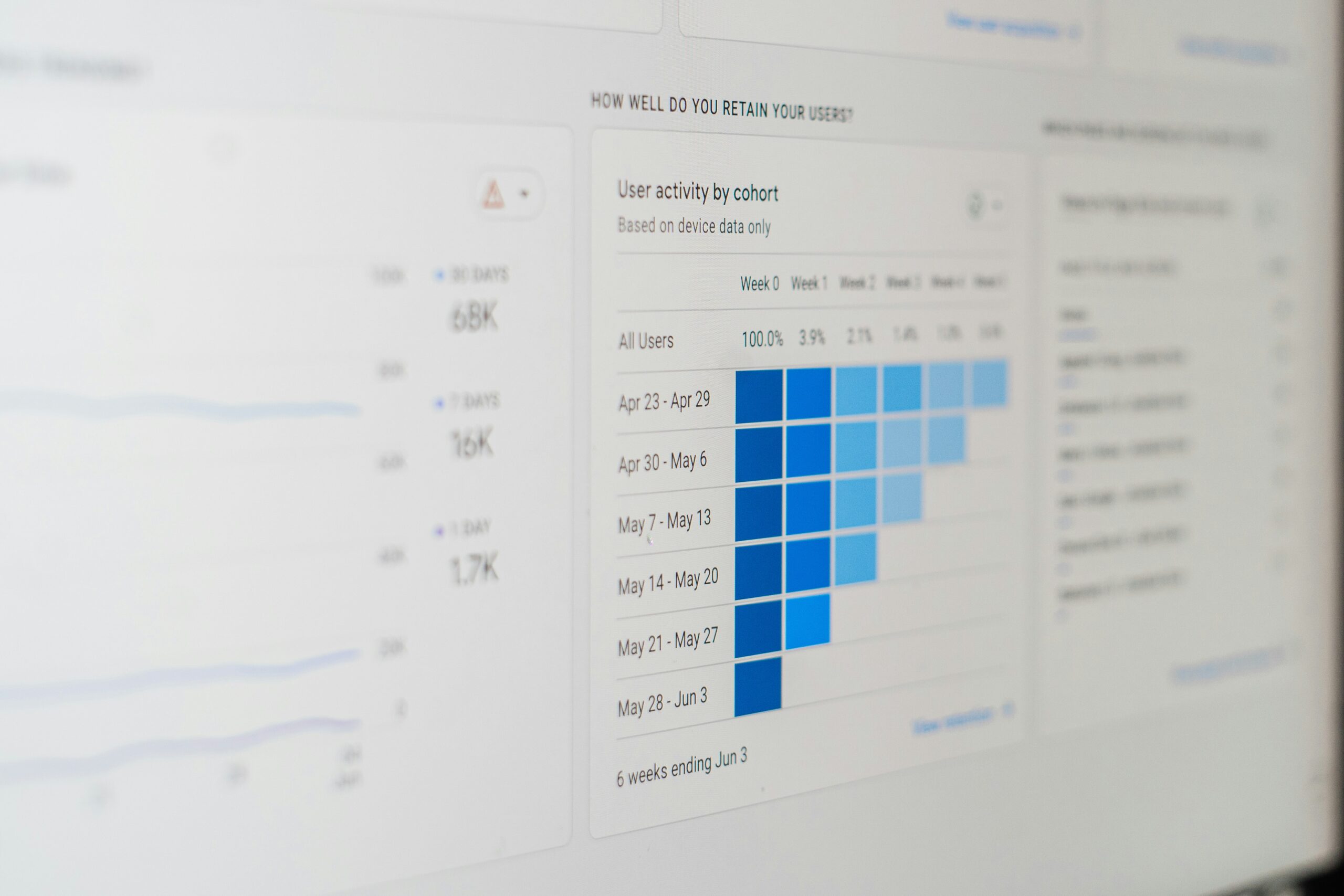
Are your marketing campaigns hitting the mark? Many businesses struggle to track their performance, leading to missed opportunities and decreased effectiveness. In this article, readers will learn how AI marketing performance tracking tools can enhance their strategies and provide insights into campaign success. Key sections include the benefits of these tools, how to implement them effectively, and tips to evaluate their return on investment. By the end, readers will understand how to leverage AI tools to overcome tracking challenges and achieve their marketing goals.
Key Takeaways
- AI marketing performance tracking tools are essential for optimizing campaign effectiveness and user engagement.
- Integration with existing marketing platforms enhances data flow and streamlines decision-making processes.
- Real-time insights and predictive analysis improve data accuracy and help tailor marketing strategies effectively.
- Training teams using AI tools maximizes their benefits and drives better campaign results.
- Gathering user feedback aids in understanding tool effectiveness and enhancing overall marketing strategy.
Understand the Role of AI Marketing Performance Tracking Tools in Achieving Goals

AI marketing performance tracking tools are essential for monitoring and optimizing campaign success. Key features to consider include automation, collaboration, and integration capabilities with existing marketing platforms. Understanding how these tools function within a data model can significantly enhance content management and overall strategy, leading to more effective marketing outcomes.
Define AI Marketing Performance Tracking Tools and Their Purpose
AI marketing performance tracking tools are designed to monitor and analyze the effectiveness of marketing campaigns. These tools help understand data security by safeguarding sensitive information while providing insights into user behavior, enabling businesses to fine-tune their strategies for better results. For instance, integrating features like search engine optimization and web scraping allows marketers to collect valuable data, ensuring that campaigns are effective and adaptable to changing market conditions.
Identify Key Features to Look for in Effective Tools
When selecting AI marketing performance tracking tools, businesses should look for features that prioritize communication and data analytics. A good tool should offer seamless integration with search engines and have the ability to analyze landing page performance effectively. This kind of data analysis not only tracks campaigns in real time but also provides insights that enable marketers to optimize their strategies for better engagement and conversion rates:
- Integration with existing marketing platforms
- Real-time data analytics
- User-friendly interface for effective communication
- Advanced tracking of landing page performance
- Adaptability to diverse market conditions
Explore Integration Capabilities With Existing Marketing Platforms
Integrating AI marketing performance tracking tools with existing marketing platforms is vital to streamlining efforts toward achieving a marketing strategy. This integration facilitates onboarding processes, allowing businesses to incorporate AI tools into their workflows smoothly. By leveraging data scraping capabilities, marketers gain timely insights into performance indicators, enhancing personalization efforts and enabling targeted adjustments to improve campaign effectiveness.
- Importance of integration in marketing strategy
- Benefits of smooth onboarding processes
- Utilization of data scraping for enhanced insights
- Impact on personalization and user engagement
- Optimization of performance indicators for better results
Discover the Benefits of Using AI Tools for Tracking Marketing Performance

AI tools for tracking marketing performance enhance customer engagement by improving data accuracy and offering real-time insights. By leveraging predictive analysis, businesses can optimize campaigns to reduce complexity and better allocate their assets. Streamlined reporting processes empower decision-making, allowing teams to respond swiftly to market changes and maximize effectiveness.
Improve Data Accuracy and Real-Time Insights
AI tools for tracking marketing performance can significantly improve data accuracy and deliver real-time insights, which is essential for achieving a favorable return on investment. By utilizing advanced analytics and market research, businesses can handle personal data more effectively, ensuring compliance while gaining deeper knowledge about customer behavior. This understanding allows digital marketing strategies to be fine-tuned quickly, responding to shifts in consumer preferences and maximizing engagement across campaigns.
Enhance Campaign Optimization Through Predictive Analysis
Enhancing campaign optimization through predictive analysis is a game-changer for marketers striving for high productivity. Businesses can harness market intelligence to anticipate trends and customer preferences by leveraging advanced data integration techniques. A user-friendly interface enables teams to visualize insights quickly, making adjusting strategies and maximizing engagement in real time easier.
Streamline Reporting Processes for Better Decision-Making
Streamlining reporting processes with AI performance-tracking tools greatly enhances marketers’ decision-making capabilities. By improving graphics and readability in reports, these tools help teams visualize campaign performance clearly, making it easier to identify areas for innovation and improvement. Additionally, utilizing insights from keyword research can build a brand’s reputation by aligning marketing strategies with customer interests, ultimately leading to more effective and informed decisions.
Review the Top AI Marketing Performance Tracking Tools Available Today

In this section, we delve into three leading AI marketing performance tracking tools that are reshaping business strategies. We’ll start with an examination of the first tool, detailing its key features and user feedback that underscore its effectiveness. Following that, we will discuss the second tool, emphasizing its unique attributes and competitive advantages in the market. Lastly, we will analyze the third tool, focusing on its role in enhancing operational workflows and increasing brand visibility across social media platforms.
Analysis of Tool 1: Features and User Feedback
Tool 1 distinguishes itself in the AI marketing performance tracking arena with features that not only boost revenue but also reduce risk. Notably, its speech recognition capabilities are well-regarded by users for facilitating seamless navigation through data insights via voice commands. This functionality enables marketers to quickly access essential performance metrics, streamlining decision-making processes and enhancing the effectiveness of their campaign strategies.
Analysis of Tool 2: Unique Selling Propositions
Tool 2 excels by integrating advanced business intelligence features that enhance the functionality of conventional marketing software. It focuses on data science to analyze and generate insights about customer lifetime value, aiding marketers in making well-informed resource allocation decisions. Users have noted a marked improvement in campaign performance, crediting the tool’s ability to provide actionable data that precisely addresses their marketing needs.
Analysis of Tool 3: Impact on Marketing Success
Tool 3 markedly improves marketing effectiveness by analyzing customer data efficiently, which aids businesses in refining their strategic approaches. It offers specialized features for email marketing, enabling marketers to craft messages that effectively engage customers and enhance satisfaction. The insights from Tool 3 support timely campaign adjustments, ensuring alignment with consumer preferences and the latest market trends. Key benefits include:
- Customer Data Analysis: Enhances strategic planning and campaign personalization.
- Email Marketing Optimization: Boosts customer satisfaction with targeted communications.
- Real-Time Insights: Facilitates swift adjustments to enhance campaign performance.
Learn How to Implement AI Tracking Tools Effectively

Assessing existing marketing strategies and data needs is vital for implementing AI tracking tools effectively. Marketing teams should set clear objectives to guide their use, ensuring that tools like Optimove align with these goals. Training personnel on best practices enhances creativity and maximizes the benefits of options, including freemium versions of tracking tools, to drive campaign success.
Assess Your Existing Marketing Strategies and Data Needs
Assessing existing marketing strategies and data needs is crucial for effectively leveraging AI performance-tracking tools. Businesses should evaluate their current customer data platform to identify data collection and analysis gaps. By understanding the learning curve associated with these tools, teams can streamline their onboarding process, ensuring that everyone is adept at using the mobile app features and creating compelling copy that resonates with their audience.
Set Clear Objectives for Using Tracking Tools
Setting clear objectives for using AI tracking tools is essential for maximizing their effectiveness. By defining data exploration and usability goals, teams can better align their marketing efforts and track key touchpoints that matter most to their campaigns. For instance, creating a newsletter to share performance insights can enhance transparency and ensure all team members know the strategies in place and the grammar used in the communication to maintain professionalism.
Train Your Team on Tool Utilization and Best Practices
Training the marketing team on the effective use of AI performance-tracking tools is essential for maximizing the benefits of marketing automation and achieving campaign goals. By familiarizing team members with the functions of tools integrated within their marketing cloud and data warehouse, they can conduct competitive analysis more efficiently and implement more effective content marketing strategies. Regular workshops and practical examples can empower staff to utilize these tools confidently, ultimately driving better results and enhancing overall marketing performance.
Evaluate the ROI of AI Marketing Performance Tracking Tools

Identifying key performance indicators (KPIs) is essential for measuring the effectiveness of AI marketing performance-tracking tools. Analyzing cost-benefit scenarios reveals their long-term value while gathering user feedback provides insights into real-world applications. This section delves into these aspects, showcasing how understanding behavior and optimizing strategy through effective copywriting and conversation can enhance chatbot performance and overall marketing success.
Identify Key Performance Indicators for Measurement
Identifying key performance indicators (KPIs) is crucial for measuring the effectiveness of AI marketing performance-tracking tools. Businesses should focus on metrics related to user behavior, such as engagement rates and conversion statistics, to understand how well their strategies resonate with the target audience. Utilizing behavioral analytics allows marketers to assess data from various sources, including backlink performance and algorithm impacts, providing deeper insights into overall campaign effectiveness and driving informed decisions for future initiatives.
Analyze Cost-Benefit Scenarios and Long-Term Value
Analyzing cost-benefit scenarios for AI marketing performance tracking tools is vital for businesses aiming to assess their long-term value. Integrating platforms like Zapier with web analytics can streamline data flow, enabling marketers to benchmark their performance more effectively. Utilizing tools such as BigQuery for robust marketing analytics allows companies to uncover trends that inform strategic investments, ensuring better returns on their tracking tools over time:
- Understanding how tools like BigQuery improve data insights.
- Learning how to benchmark performance effectively.
- Utilizing Zapier to enhance integration across marketing platforms.
- Evaluating the long-term benefits of investment in marketing analytics.
Gather User Feedback and Testimonial Evidence
Gathering user feedback and testimonials is critical for evaluating the ROI of AI marketing performance tracking tools. Businesses can understand how these tools impact customer service and overall marketing effectiveness by collecting user insights regarding scalability and audience segmentation. Practical examples show that marketing teams leveraging predictive analytics are more equipped to personalize their strategies, leading to improved engagement and satisfaction levels among their audience.
Stay Ahead of Industry Trends in AI Marketing Performance Tracking

Staying ahead of market trends in AI marketing performance tracking requires following emerging technologies and innovations. Engaging with expert opinions and real-world case studies enhances understanding of effective strategies. Attending webinars and conferences promotes continuous learning and informs marketers about the latest data sources, social media analytics, and user-friendly interfaces that drive successful campaigns.
Follow Emerging Technologies and Innovations
Keeping pace with emerging technologies and innovations is vital for maximizing the effectiveness of AI performance-tracking tools. Businesses can enhance customer support by integrating advanced analytics focusing on sentiment analysis, allowing for a deeper understanding of customer preferences and pain points. Additionally, leveraging these insights aids in conversion rate optimization, ensuring marketing strategies are data-driven and aligned with current market demands.
Engage With Expert Opinions and Case Studies
Engaging with expert opinions and real-world case studies can significantly enhance understanding of AI marketing performance tracking tools. For instance, analyzing how businesses implement these tools to boost campaign efficiency reveals practical strategies that others can adopt. By examining diverse pricing models and the impact of AI-driven virtual assistants on text editing for campaign content, marketers can unlock valuable insights to improve their own efforts, ultimately leading to more successful outcomes.
Attend Webinars and Conferences for Continuous Learning
Attending webinars and conferences provides digital marketers with valuable opportunities to gain competitive intelligence and stay updated on the latest trends in AI performance-tracking tools. These events often feature industry experts sharing market insights that can enhance the effectiveness of strategies, whether in social media marketing or using an email marketing tool. By participating in these sessions, marketers can engage directly with thought leaders and learn how to better understand consumer behavior, allowing them to refine their campaigns and drive better results.
Conclusion
AI performance-tracking tools are vital for improving marketing strategies and achieving business goals. By leveraging accurate data insights and predictive analytics, marketers can optimize campaigns to engage customers effectively. Integration with existing platforms enhances the user experience and streamlines decision-making processes. Investing in these tools boosts campaign performance and empowers teams to stay ahead of market trends and consumer demands.

Comments